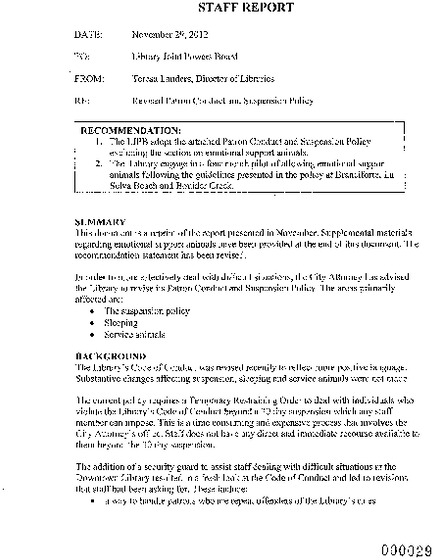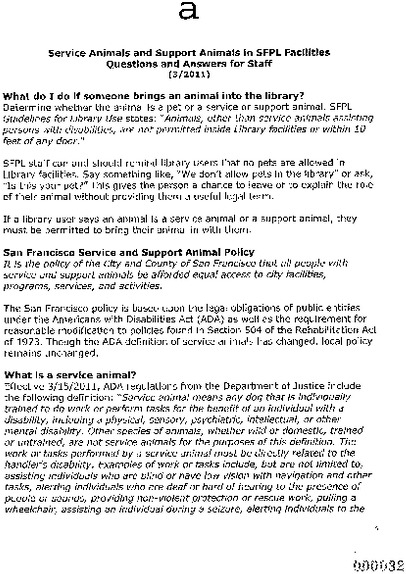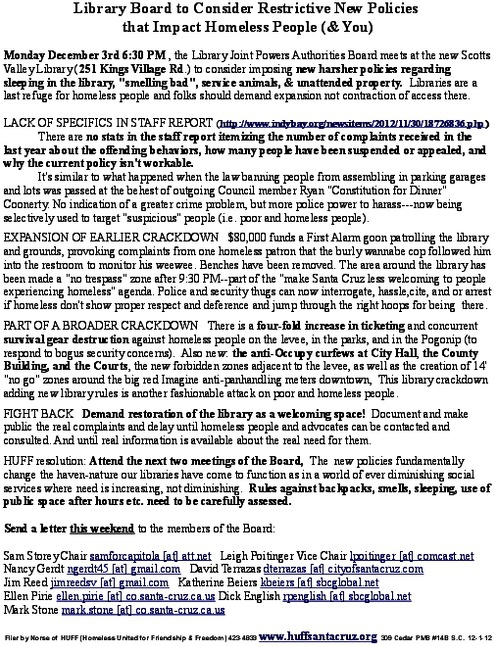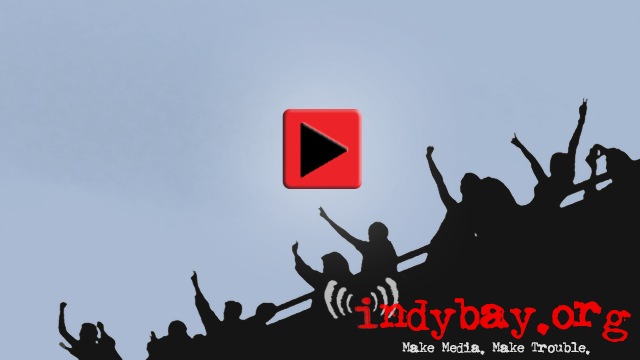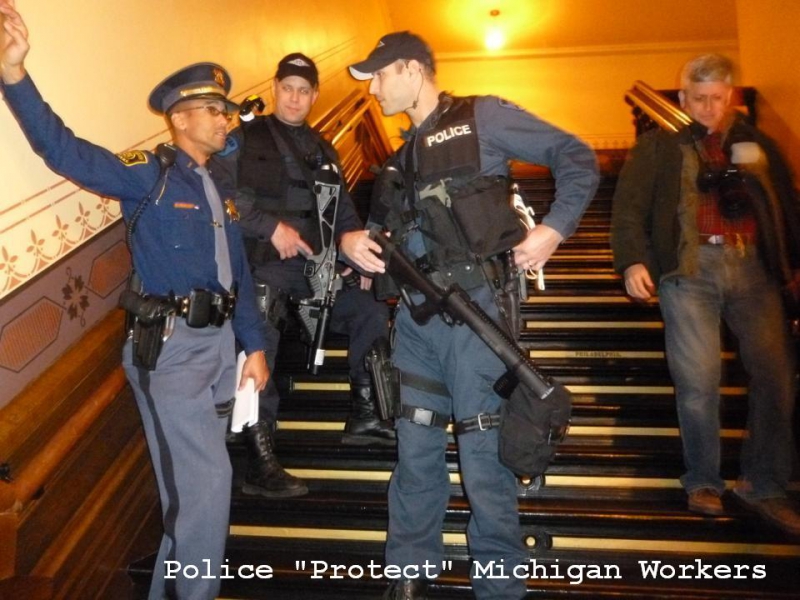Nazis didn’t begin with forced labor camps, but rather by proscribing classes of people. That, I think, is the point of the comparison. When you deny people the right to sleep at night, the right to assemble in public, the right to show their wares, the right to use public services, etc., you start down that long road. Which is what Santa Cruz (and other cities) are doing (and have done for a number of years).
It’s maliciously deceptive to misdescribe the rule changes as “telling people to take a shower, leave the library at 9:30 pm and to stop crapping in the bushes”. It’s a matter of driving the homeless out of town–the library closes much earlier, but the grounds are now forbidden after 9:30 PM–specifically to deny homeless people a traditional place of refuge. Ditto with the removal of the benches. Crap in the bushes? Haven’t heard specific complaints, but I wouldn’t be surprised since public bathrooms close at night. Surprised why people fall asleep in libraries when it’s illegal to sleep at night? I’m not.
UNEXPECTED VICTORY
More upbeat, however, was the 5-4 decision of the Library Board to defeat a proposal to add a Sleeping Ban to its lilbrary policy. This was unexpected until the very last moment. Katherine Beiers, who dissented from the broader motion supporting harsher policies against “rule breakers” (rules being things like having unattended property, smelling bad, and having a dog in the library), moved to divide the question, and finally got a substitute motion passed over the confusion of David Terazzas, which passed everything but the Sleeping Ban.
The Sleeping Ban was then proposed as a separate motion (with pretexts like sleepers were “in the way”, “misusing the library for a purpose for which it was not intended”, “discomforting others”, “blocking access” and other pretexts that ignored the basic “they make us uncomfortable and we want a simple rule to exclude them”). Based on the general silence seeming to give consent to the Ban, this seemed like it would be Beiers alone, but Samuel Story gave an eloquent statement, and others apparently jumped on board. For once, the staff didn’t get their way.
BROADER DEFEAT
But the victory was only on that one issue–and perhaps because the issue was what each speaker focused on–how libraries were sanctuaries, how there’d been a host of anti-homeless rules around the library, how the city-wide sleeping ban added insult to injury, how winter and Xmas time was the wrong time to bring the hammer down, etc. Apparently it all had an impact.
Of course, the staff got a new policy that allows for much longer suspensions for a variety of rules that weren’t available for the public to read (there was no agenda packet available for the public). There was also a peculiar process that didn’t allow public comment on any staff items, except, suddenly, the new policies issue, which was packaged as a “staff report” and not as an action item. I tried to raise this, but was silenced by Story, the chair of the meeting.
I did speak with Teresa, the chief librarian who was pushing these restrictive rules, saying that the existing policy just allowed for a 30-day suspension followed by a restraining order (that’s now changed, and there can be much longer suspensions after the 4th warning). When I asked her how many people came back to repeat the policy after being suspended for thirty days, she had no stats or figures. she did say that they’d only issued one restraining order this year but that was because her staff was “heavily burdened”.
Another member of the public objected on a different issue that the library had failed to provide a copy of the prior agenda on request, insisting that he fill out a written public records act request and wait 10 days because of “staff problems”.
All very arrogant and unlikely–showing again that rules (as when the Homeless Lack of Services Center was closed–and remains closed) to “non-business” assembly during the day it was for the convenience of the staff. Upside down logic since the staff are supposed to be serving the public. But chillingly similar to why the Parking Lot Paranoia law (banning people from reading books in their cars in city parking lots, or gathering in a parking lot)—as Ryan Coonerty explained it–to accommodate city staff complaints (as well as the anxieties of his employees at the Bookshop Santa Cruz).
Still, it showed that liberals like to keep the pretty make-up on, particularly if enough people show up to challenge the latest civil rights seizure. I admit that I even applauded and thanked John Leopold (who actually proposed the motion to ban sleeping, but voting not to do so).
Nice work, Occupy Santa Cruz activists (all the critics were from Occupy Santa Cruz, and all over 50). Now we have to plan for the next library sleep-in when we receive reports of people being suspended from the library for objecting when they’re told to leave their backpacks outside to be stolen.
